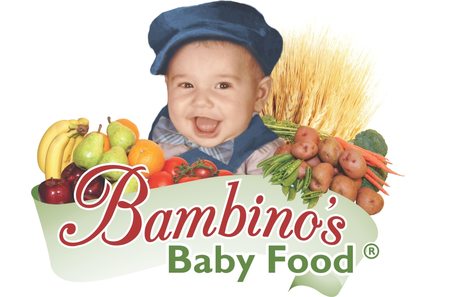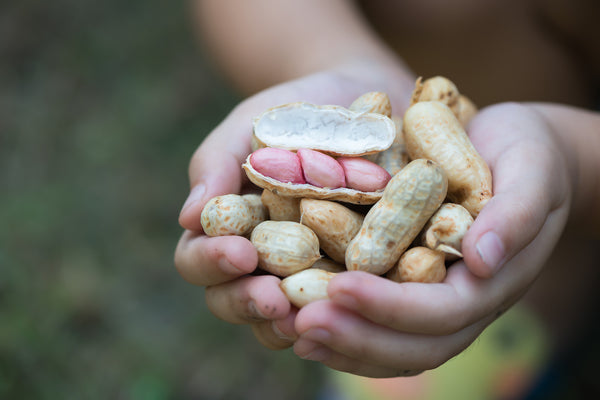About Peanut Allergies
About 1.5% of children have a peanut allergy. Diagnosis usually occurs before two years of age. They could grow out of it, but there is no cure. Peanut allergy reactions are often more severe than for other food allergies, and because so many food products use small amounts of peanut protein, it’s hard to avoid it completely. Peanuts are the most common food allergy cause of anaphylaxis (a severe reaction that could be fatal if not treated) and death.
Avoid Peanuts—Or Not
Within 11 years, peanut allergy cases tripled in the U.S. In 2000, the American Academy of Pediatrics (AAP) suggested that feeding peanut products to infants would raise their risk of developing a peanut allergy and urged parents to avoid feeding peanuts to their babies. But instead of decreasing, peanut allergies increased, and in 2008, the AAP said sheltering children from peanuts wasn’t the best policy.
Then some intriguing research popped up. Jewish children in the UK had more peanut allergies than Jewish children in Israel, and upon further study, it turned out that the kids in Israel regularly ate peanut products before their first birthdays, whereas the kids in the UK did not.
What the Experts Say
The Immune Tolerance Network published a study called Learning Early About Peanut (LEAP) in 2015. More than 600 children under the age of 11 months were divided into two groups for the study. These children had a high risk of developing a peanut allergy (usually because of family history). One group ate a peanut product at least three times a week, and the other group avoided anything with peanuts in it.
By age five, only 3% of that first group had a peanut allergy. But in the group that avoided peanuts, 17% of the children developed an allergy. Thus, introducing peanuts to your baby can teach his/her body to accept peanuts and can decrease his/her risk of a peanut allergy by 80%.
In the later LEAP-ON study, the five-year-olds from both previous groups avoided peanuts for a year. The first group that ate peanuts early in life still had fewer new cases of peanut allergy than the group that avoided peanuts their whole lives. So even going without peanuts for a while, your child will be okay as long as she was previously exposed to peanuts on a regular basis.
How to Reduce the Risk of a Peanut Allergy in Your Baby
To build up her tolerance, give your baby peanuts. But not actual peanuts—those are choking hazards until children reach four years of age. Safe alternatives include smooth peanut butter or Bambino’s Peanut Mani Cookies. Starting at four months of age, you can give your baby a Peanut Mani Cookie every day for 18 months (they’re also great as teething cookies). This doesn’t mean your child will never develop a peanut allergy, but Bambino’s Peanut Mani do have a 72% success rate in averting peanut allergies in infants.
Be cautious when you introduce peanut products. If your infant is at high risk for developing a peanut allergy (whether it’s due to family history, eczema, or other allergies), Dr. Claire McCarthy, MD, FAAP recommends taking your child to her doctor first for some allergy testing. You could even have your child try her first ever peanut product at the doctor’s in case she does have an unexpected reaction. If you already know that your baby has a peanut allergy, consult your doctor before giving her the Peanut Mani Cookies.
Bambino’s Wants to Help
Peanut allergies may be driving you nuts, but beware of other food allergies—you can read up on how to prevent those, too. It’s not yet known if the same approach works for every food allergy, but Bambino’s can give you a head start on the peanut allergy. The Peanut Mani Cookie is designed specifically to thwart peanut allergies. Many allergists support the Peanut Mani Cookie and use it in their clinics to help prevent peanut allergies. Besides the peanut desensitization, your baby receives other benefits from the Peanut Mani Cookie: nutritious carrots, sweet oranges, vitamins A and C, and all natural and organic ingredients. In addition, allergists have approved the entire line of Bambino’s foods, so you can introduce allergenic foods safely and deliciously.
Resources
American Academy of Pediatrics:
Food Allergy Research and Educationhttp://www.foodallergy.org/allergens/peanut-allergy
Immune Tolerance Network’s Learning Early About Peanut:
The New England Journal of Medicine:
http://www.nejm.org/doi/ref/10.1056/NEJMe1500186#t=article

